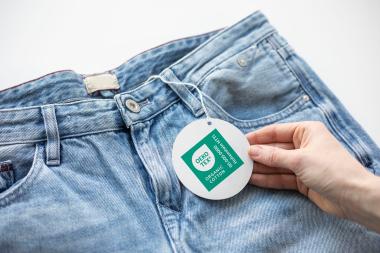OEKO-TEX® ORGANIC COTTON - New label for organic cotton
From April 2023, OEKO-TEX® will officially launch its new ORGANIC COTTON label. Two initial pilot customers have already been certified by the testing service provider Hohenstein: the Indian textile supplier Milan Group and the Turkish cotton producer Akasya.
The new organic label ensures that all requirements for labeling as organic cotton are met. In addition to testing in accordance with OEKO-TEX® STANDARD 100, it ensures that the cotton contains less than ten percent genetically modified material, complies with pesticide limits and guarantees its organic origin.
Textile companies whose products have been certified with the OEKO-TEX® STANDARD 100 can now have their certificates extended to an ORGANIC COTTON certificate after ensuring ecological production.
"A combination with OEKO-TEX® MADE IN GREEN is ideal," explains Ivonne Schramm, Head of OEKO-TEX® at Hohenstein. "This ensures environmental friendliness, transparency and socially responsible conditions in a single certification."
The certificate can be used for ready-made articles (e.g. T-shirt, bedspread, etc.) as well as for textile intermediate products (e.g. intermediate products such as raw fibers, yarns, etc.). Mixtures of organic and conventional cultivation are not permitted.
Hohenstein





